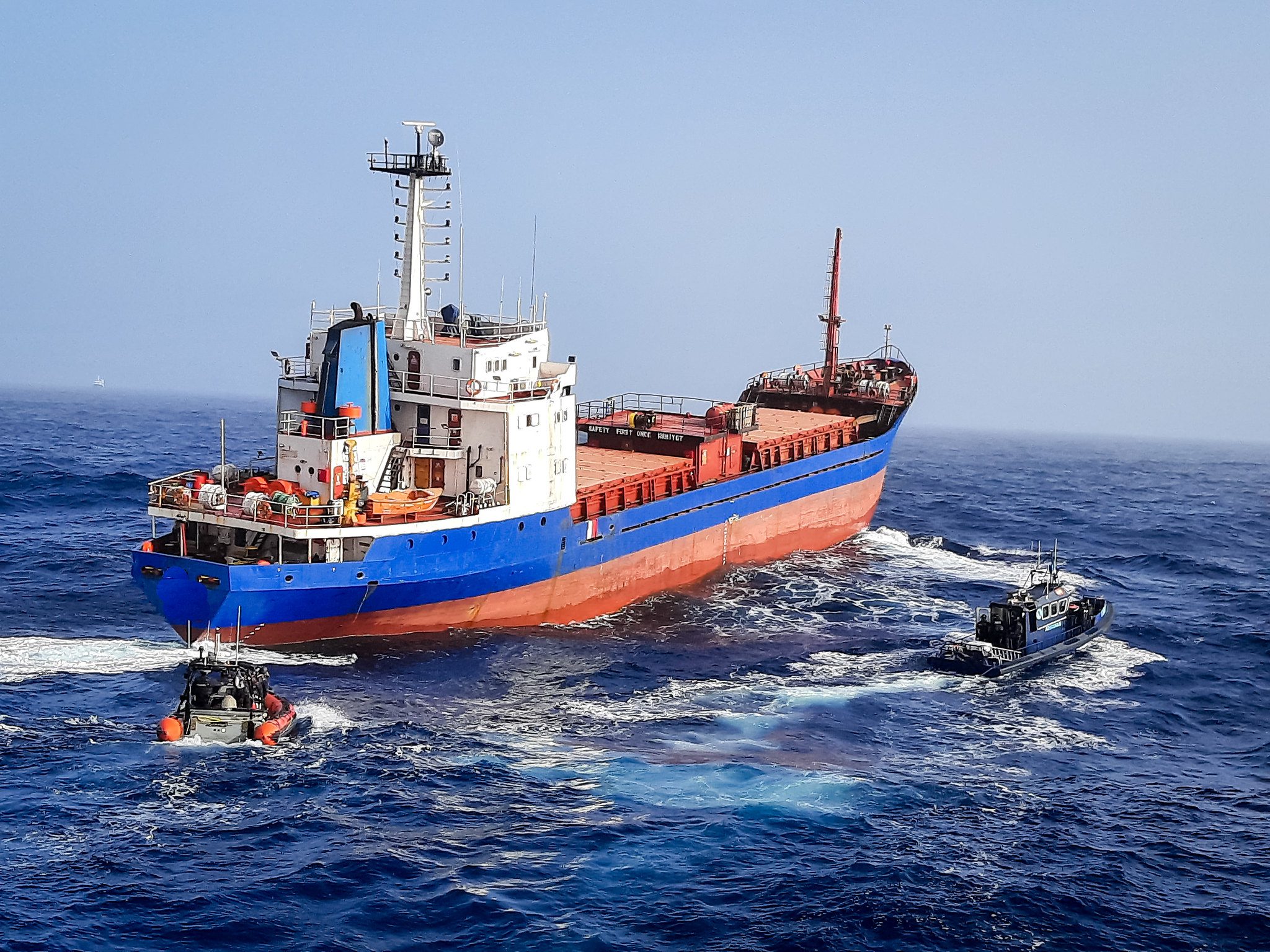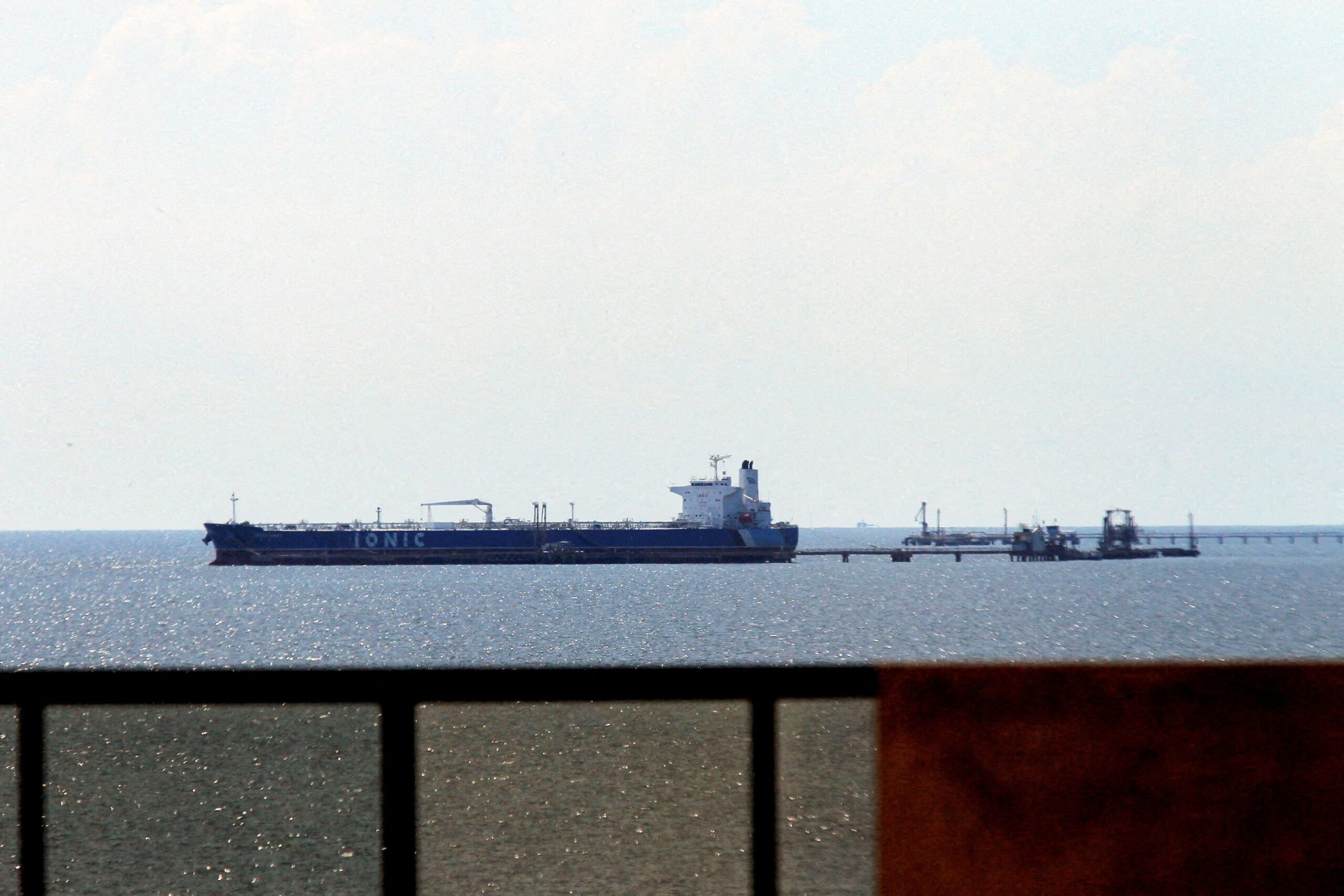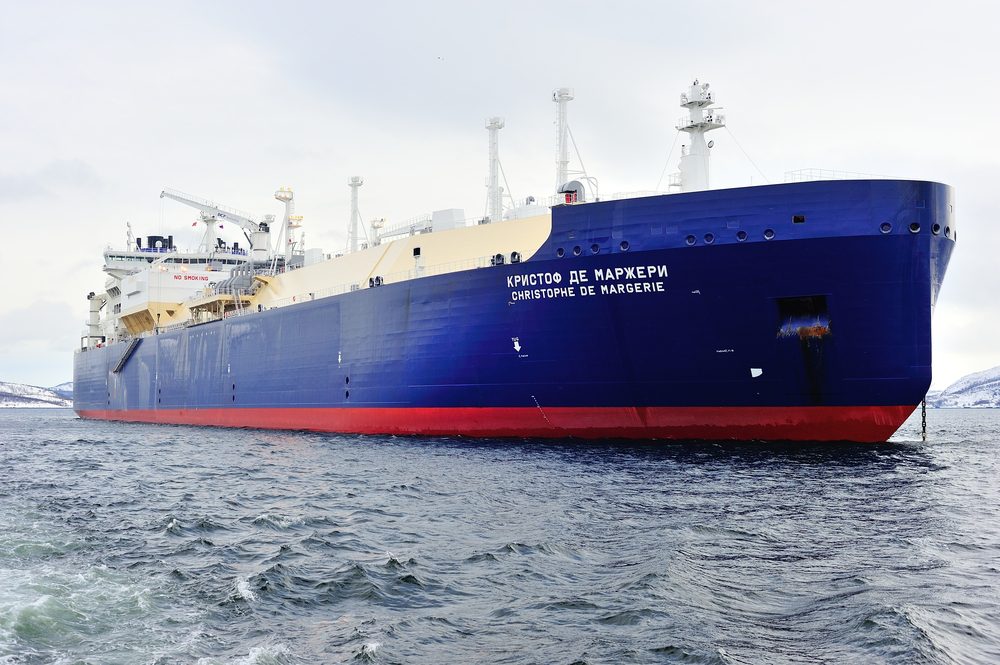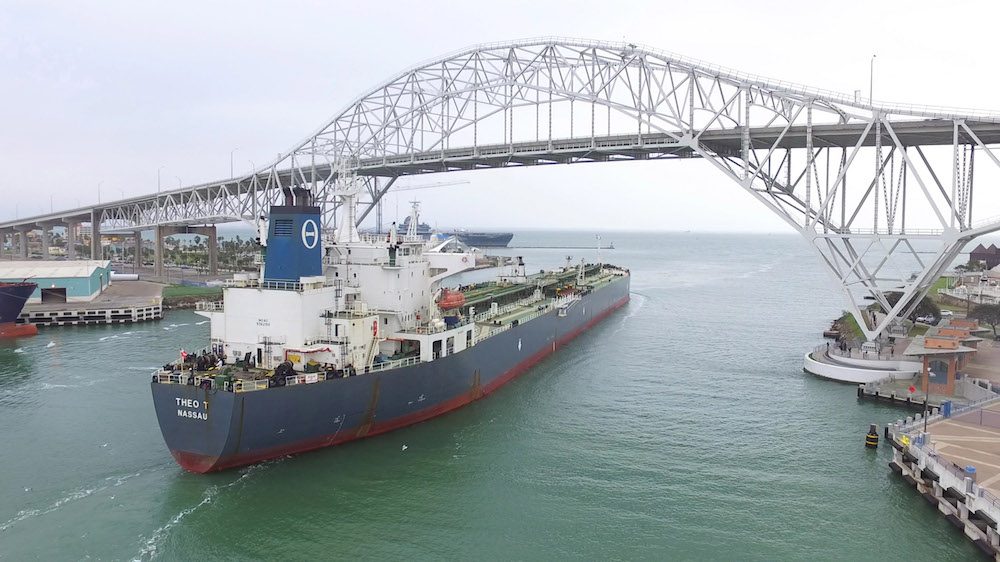Spanish and French customs authorities have intercepted a Tanzanian-flagged cargo ship carrying an estimated 4,000 kilos of cocaine, 130 nautical miles off the Canary Islands. The vessel, named Ras, was seized after an unusual journey that caught the attention of law enforcement.
The 70-meter-long cargo ship embarked on what officials described as an “uneconomical voyage,” departing from Turkey and traversing the Mediterranean to the Atlantic. The vessel then sailed to Sierra Leone and Guinea Bissau without any apparent loading or unloading of cargo, before making erratic maneuvers en route to the Iberian Peninsula.
“The presence of naval and air resources from both countries’ customs services in the area allowed for swift action, preventing the drugs from being transferred to smaller vessels and reaching Spanish shores,” a spokesperson for the operation stated.
The interception off the island of Lanzarote was carried out by the Spanish Customs Surveillance Special Operations Vessel Petrel, in coordination with the French customs patrol boat DPF-3, as part of the joint operation ‘Pascal-Lino 2024’.
All ten crew members were arrested, including seven Turkish nationals (one of whom was the captain), two Azerbaijani nationals, and one Dutch citizen.
Authorities initially struggled to locate the cocaine, as it was cleverly hidden in a difficult-to-access compartment between the ship’s holds.
The operation concluded with the arrival of the Petrel and the seized cargo ship at the port of Arrecife, Lanzarote, where the drugs were unloaded and the detainees handed over to relevant authorities.
The successful bust is part of the broader ‘Pascal-Lino-Iborra’ project, an ongoing cooperation between Spanish and French customs since 2017. The project aims to combat maritime customs fraud through joint operations in the Mediterranean Sea, Cantabrian Sea, and North Atlantic.
“The ‘Pascal-Lino-Iborra’ project represents a significant platform for cooperation between our customs offices,” a senior official commented. “It goes beyond joint operations, fostering the exchange of protocols, knowledge, and best practices to enhance our response to illicit sea trafficking.”

 Join The Club
Join The Club











